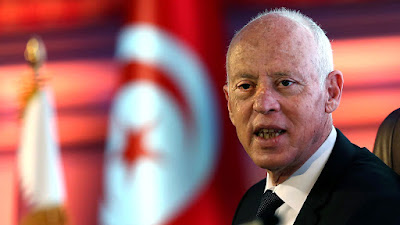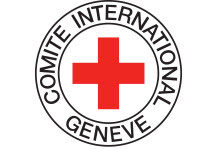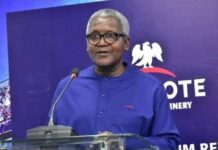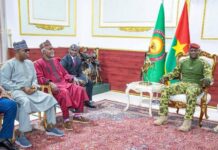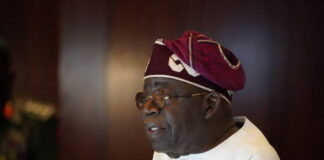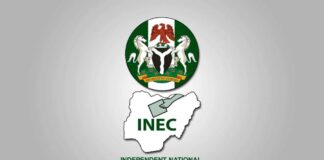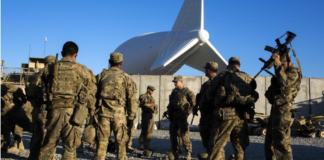President Charges a “Conspiracy” But Provides No Evidence
TUNIS, Tunisia, February 24, 2023/ — Tunisian authorities have arrested two critics of President Kais Saied on February 22, bringing the number of public figures deemed critical of Saied behind bars to at least 11, Human Rights Watch said today. The president has denounced them as “terrorists” and “traitors” and threatened those who would defend them.
The roundup is the biggest since Saied granted himself extraordinary powers on July 25, 2021, and announced taking over supervision of public prosecution. It began with an initial wave of arrests between February 11 and 15 that targeted at least nine people. Authorities arrested two more opposition leaders, Chaima Issa and Issam Chebbi, on February 22.
In a televised speech on February 14, President Saied referred without naming to those arrested as “terrorists” and “traitors” and accused them, before they were formally charged, of “conspiracy against internal and external state security,” remarks that undermine the presumption of innocence. Saied also warned on February 22 that “Whoever dares to exonerate them is their accomplice,” the latest in a series of attacks by the president on the independence of prosecutors and judges.
“After putting himself in charge of prosecution and firing judges right and left, President Saied is now going after his critics with utter abandon,” said Salsabil Chellali, Tunisia director at Human Rights Watch. “Saied is calling them terrorists and dispensing with the pretense of assembling credible evidence.”
Officers of the Counter-Terrorism Brigade arrested Chebbi, leader of the Jomhouri (Republican) Party, in the street in Tunis on the afternoon of February 22 and searched his home without showing an arrest warrant, his wife told Kashf TV.
Issa, who is active in the National Salvation Front, an opposition coalition, was arrested on February 22 by counterterrorism forces. On the same day, police also surrounded the home of another opposition figure and member of the National Salvation Front, Jaouhar Ben Mbarek, while he was not at home.
Authorities have not yet revealed the precise charges against Chebbi and Issa.
The initial arrests between February 11 and 15 were of at least nine people, including five opponents or critics of the authorities, two judges, a businessman, and the director of a radio station. All are still detained, including a judge who is being held in a psychiatric hospital. Three of the defense lawyers for those arrested told Human Rights Watch that the serious charges against their clients are not substantiated by the evidence in the case files.
The arrested opposition figures include Khayam Turki and Abdelhamid Jelassi, taken from their homes on February 11. Both were arrested under a terrorism law that does not adequately safeguard against abuse of the detainee: it provides pre-charge custody for up to 15 days and denies access to a lawyer for 48 hours after detention.
Khayam Turki, former member of opposition party Ettakatol, was interrogated about his political activities and for having hosted US diplomats at his house, his lawyer, Samir Dilou, said. Police interrogating Abelhamid Jelassi, a former official with the Ennahda party, asked him about his meetings with foreign researchers and critical statements he made to the media about President Saied’s implementation of extraordinary measures in July 2021, which Jelassi called a “coup,” his family told Human Rights Watch.
Nourredine Bhiri, a leader of Ennahada party and justice minister from 2011 to 2013, was arrested on February 13 and accused of “seeking to change the nature of the state” under article 72 of the penal code, which provides for capital punishment, in connection with statements he made to the media on January 8, during a protest of the National Salvation Front, according to Dilou. Bhiri was arbitrarily detained for two months at the beginning of 2022 and freed without charge.
The director of Mosaïque FM radio, Nourredine Boutar, arrested on February 13, is now facing money laundering and “illicit enrichment” charges. The Tunisian journalists’ union, the Syndicat national de journalistes tunisiens, denounced the prosecution of Boutar as a political case intended to intimidate journalists and restrict press freedom. His arrest is directly related to the scathing tone of the radio and especially its flagship daily program, “Midi Show,” which is very critical of Saied, his lawyer, Dalila Msaddek, told Human Rights Watch, saying that police interrogated her client on Mosaïque’s editorial line and its hiring of journalists.
The lawyer, activist, and former minister Lazhar Akremi was also arrested on the evening of February 13 after the police raided and searched his house, Dilou said. Also arrested by anti-terrorism police, Akremi is still in custody at the Bouchoucha detention center in Tunis. No charges have been filed against Akremi yet, but a police search warrant for his house shared on social media refers to suspected “conspiracy against internal and external state security.”
Walid Jalled, a former member of the parliament – dissolved in March 2022 by Saied – and president of a local football club, was placed in custody on February 15. He was officially charged with money laundering and “illicit enrichment” on February 22, his lawyer, Mabrouk Korchid, told Human Rights Watch. However, Korchid noted that Jalled was interrogated by the anti-terrorism squad about his political activities and ties with critics of Saied, suggesting that the real motive behind his arrest is political.
“The message in these arrests is that if you dare to speak out, the president can have you arrested and publicly denounce you while his henchmen try to build up a file against you based on remarks you made or who you met with,” said Chellali.

